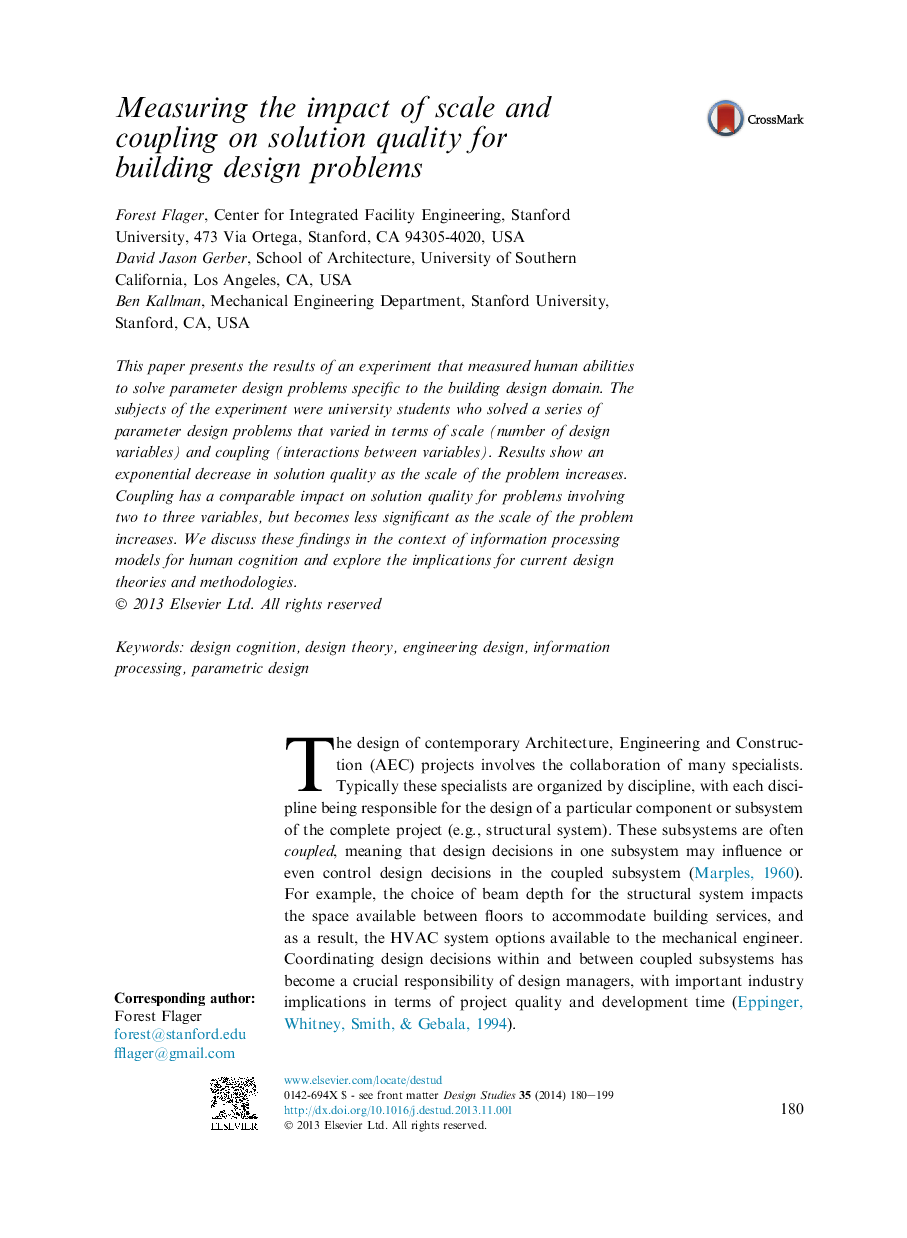| Article ID | Journal | Published Year | Pages | File Type |
|---|---|---|---|---|
| 261484 | Design Studies | 2014 | 20 Pages |
•We empirically measured human abilities to solve parametric building design problems.•We examine changes in solution quality as a function of problem scale and coupling.•Solution quality decreases exponentially as the scale of the problem increases.•Coupling has relatively less impact on solution quality as problem scale increases.•Cognitive limits play an important role in human abilities to solve complex problems.
This paper presents the results of an experiment that measured human abilities to solve parameter design problems specific to the building design domain. The subjects of the experiment were university students who solved a series of parameter design problems that varied in terms of scale (number of design variables) and coupling (interactions between variables). Results show an exponential decrease in solution quality as the scale of the problem increases. Coupling has a comparable impact on solution quality for problems involving two to three variables, but becomes less significant as the scale of the problem increases. We discuss these findings in the context of information processing models for human cognition and explore the implications for current design theories and methodologies.
